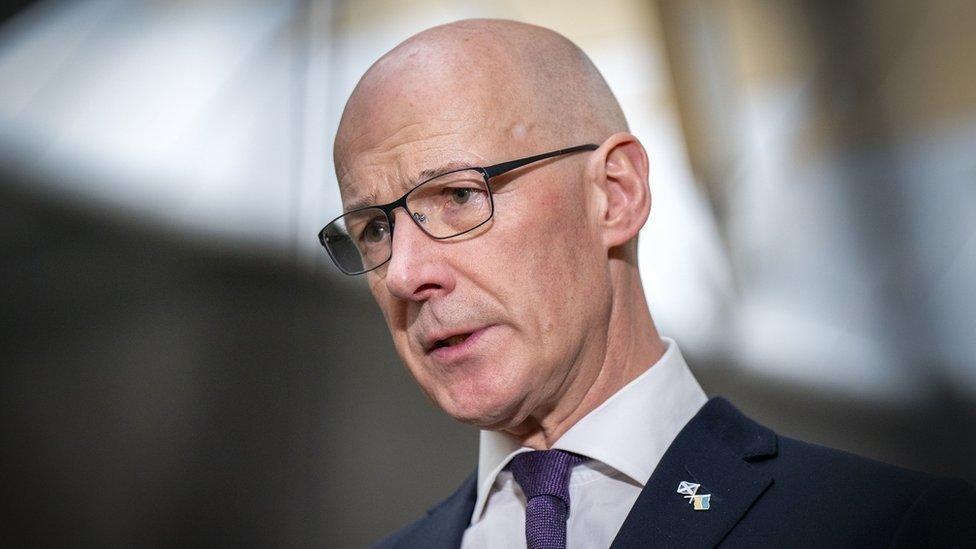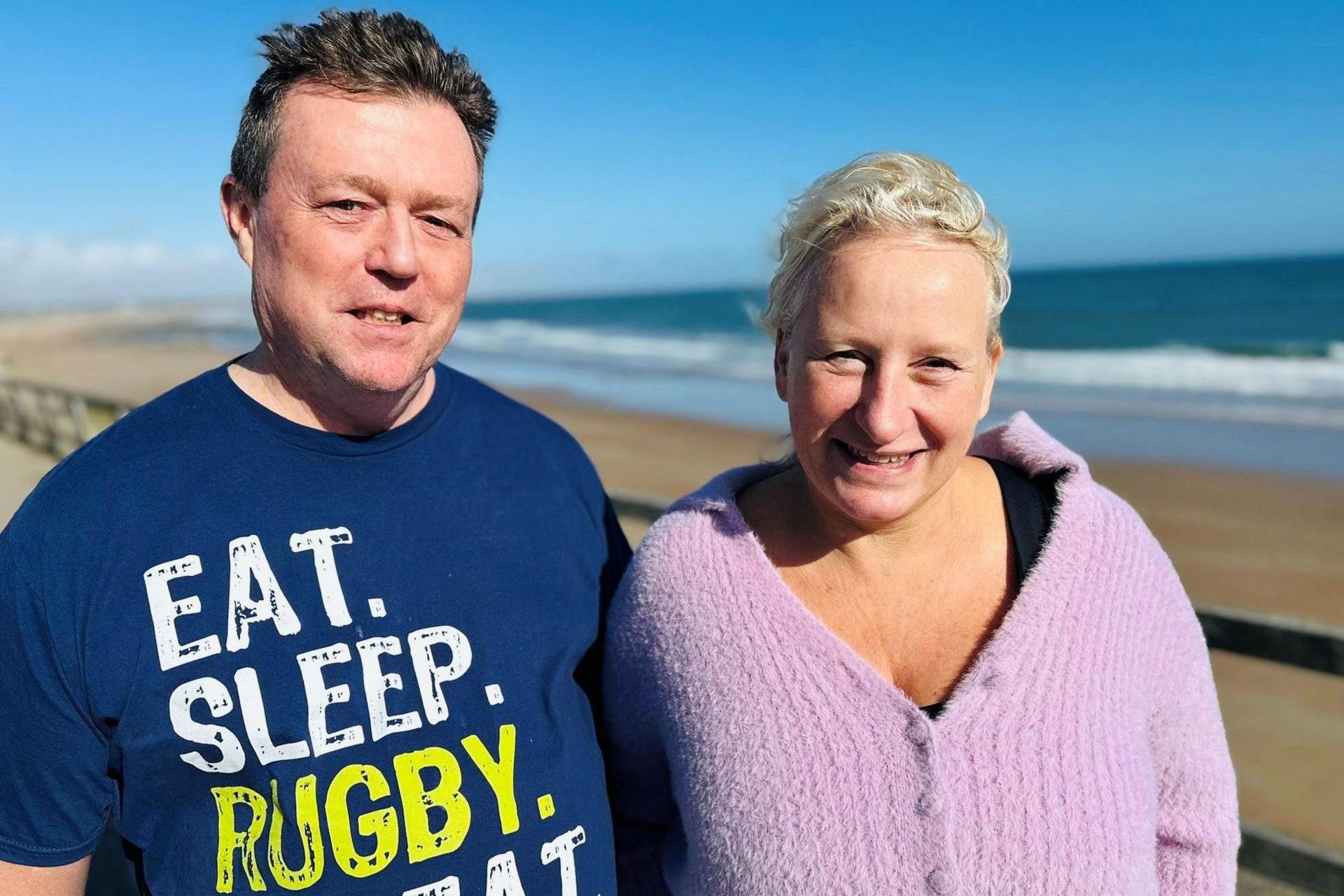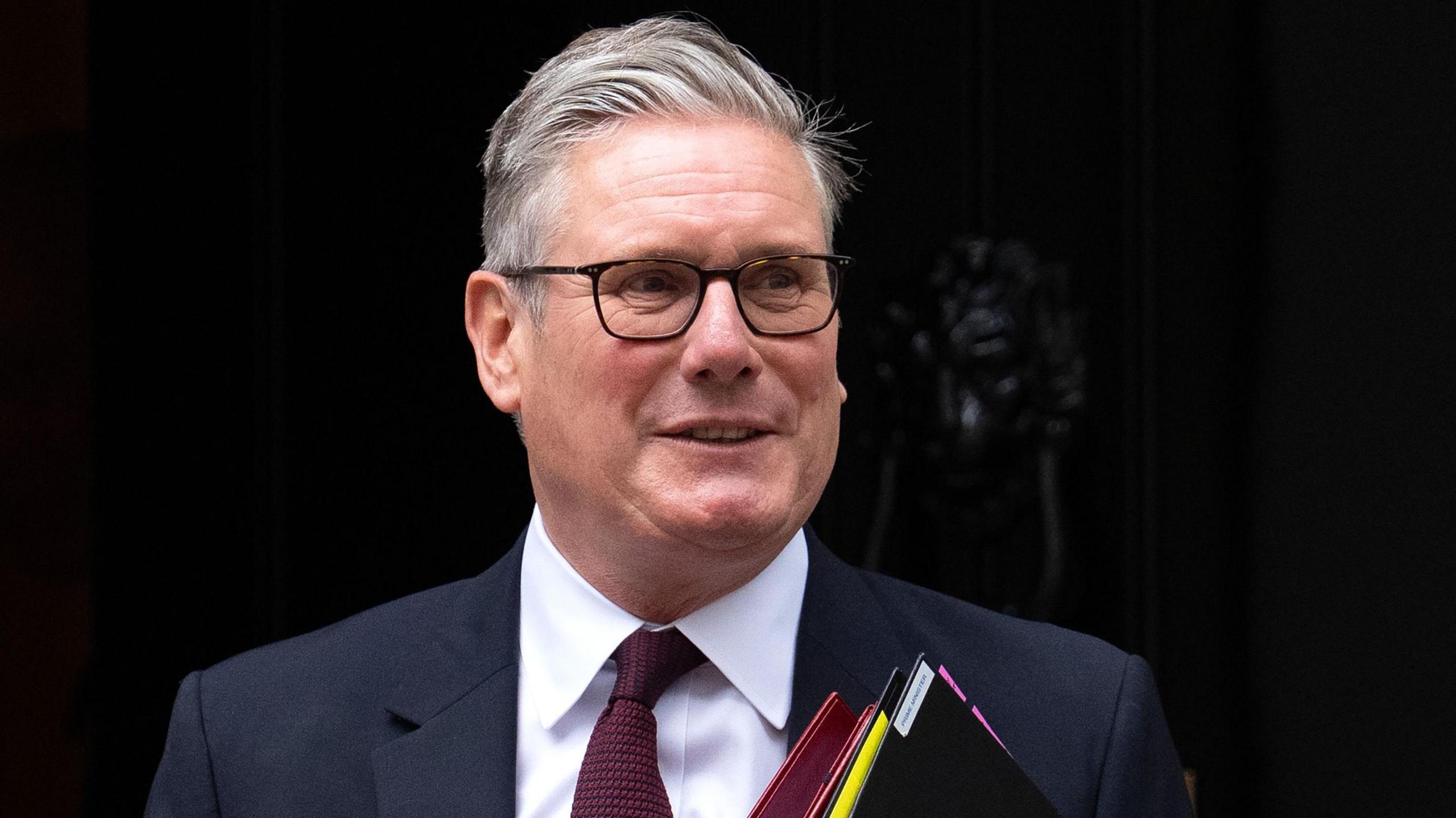Swinney says ID scheme is attempt to 'force Scots to be British'

John Swinney said that he opposed the mandatory aspects of the scheme
- Published
First Minister John Swinney has said he is opposed to a mandatory UK digital ID scheme as an infringement on daily lives.
In a social media post, he said Sir Keir Starmer was "attempting to force every Scot to declare ourselves British".
The Prime Minister has announced plans for the scheme as a means of tackling illegal working and making borders more secure.
Swinney also hit out at descriptions of the new ID as a "Brit Card"
However, Scottish Secretary Douglas Alexander said it would not be called a Brit Card and was not even a card.
He likened it to a digital payment card or boarding pass stored on a mobile phone.
The initiative, similar to schemes already operating in Australia, Estonia and Denmark, would be mandatory for adults in the UK.
In a post on X, Swinney said: "I am opposed to mandatory digital ID – people should be able to go about their daily lives without such infringements.
"That aside, by calling it BritCard, the prime minister seems to be attempting to force every Scot to declare ourselves British. I am a Scot."

Supporters of digital ID say it would help people access online services securely
Secretary of State for Scotland, Douglas Alexander said the "Brit Card" description was entirely wrong.
He told the BBC's Good Morning Scotland programme: "We've got boarding passes, train tickets, Tesco Clubcards on our phones already.
"And I can be very clear, you won't be required to carry it or produce it except to prove your right to work in the United Kingdom."
Alexander urged people not to "play politics" in the debate over the scheme, and said it would have other benefits for citizens.
He added: "This is a development that I think reflects the fact that many of us want to see not only a secure identity online as more of our lives move online but also the opportunity to actually help us engage directly with public services.
"How many times have any of us had to scrabble around the house to try to find an old utility bill."
'Blatant hypocrisy'
The Scottish Conservatives said Labour's plans were flawed and would lead to "state control" which violated the right to privacy.
But they also claimed John Swinney was guilty of "blatant hypocrisy" and "playing politics" in his opposition to the scheme.
MSP Murdo Fraser said: "He was the architect of the hated named person scheme which was a form of state control even worse than what Keir Starmer is now proposing.
"He was also Nicola Sturgeon's right hand man when the SNP proposed their own digital ID scheme in 2021."
Deputy First Minister Kate Forbes said she received a call from the UK government about the scheme on Thursday and was awaiting further details of how it would work.
But she echoed Swinney's concern about any mandatory aspects of the plans.
"We are opposed to the introduction of any cards that are compulsory to have or compulsory to carry or that anyone can demand to see," she said.
Forbes said there were already alternative methods of ensuring people had the right to work in the UK.
She said she was concerned that it was the start of something more intrusive, and also that there was no evidence on whether the public supported it.

There are ways in which the Scottish government could be relatively sympathetic to an ID card scheme.
The experience of having thousands of young people sign up for free bus passes, some of them struggling with a lack of driver's licence or other formal identification, underlined potential positives to a nationally recognised scheme.
They also have their own national entitlement card system already, often known as the "Saltire card".
But there is one key thing they can't get on board with – that word "mandatory".
There is a core civil liberties argument behind this, that ministers govern with the consent of the citizenry; optional schemes would be fine, but not one which is a requirement.
The notion of it being called a "Brit Card" was a red rag to a bull too, and drew an immediate reaction from John Swinney – but UK ministers have been quick to squash that rumour.
It was never going to be a goer really; concerns about how it would go down in Northern Ireland would be even more acute than those involving Scots.
Whatever it's called though, it seems there is going to be yet another big domestic political issue for these two governments to squabble about in the run-up to next year's Holyrood election.

What did people in Scotland think of the ID plan?
At Aberdeen beach on Friday, Brian Newport was on holiday from Australia.
He said he has "seamlessly" lived with digital ID for some time back home, and backed the UK plan.
"I think it's a positive step, from my point of view, because if you have the right to work here then you've got that ID," he told BBC Scotland News.

Brian Newport said digital ID worked well in Australia
"We really don't get harassed for it very much. It's just a thing that we're used to, you know? We all know who's who.
"If you've got nothing to hide, what's wrong with it? Bring it on, it's a good idea."

Bryan Cronin and Melissa Johansson also offered their opinion in Aberdeen
Bryan Cronin and Melissa Johansson had differing opinions.
"I think we had IDs for pretty much everything," Bryan said. "You can't really avoid it.
"I wonder if the objective is to try and catch people who shouldn't be working here.
"I think it's a good idea, so I support it."
However, Melissa said: "I think it's another thing to worry about."

Kyle Simpson and Bo Cain had reservations about the plan
Bo Cain, 19, and Kyle Simpson, 20, had their doubts it was the right answer.
"It's just another thing to add to the list of things you've got to remember," Bo said.
Kyle is worried about relying on digital technology.
"Things go wrong," he said.
Related topics
- Published25 September

- Published4 September
